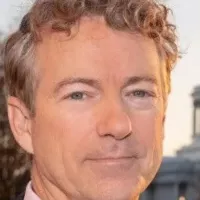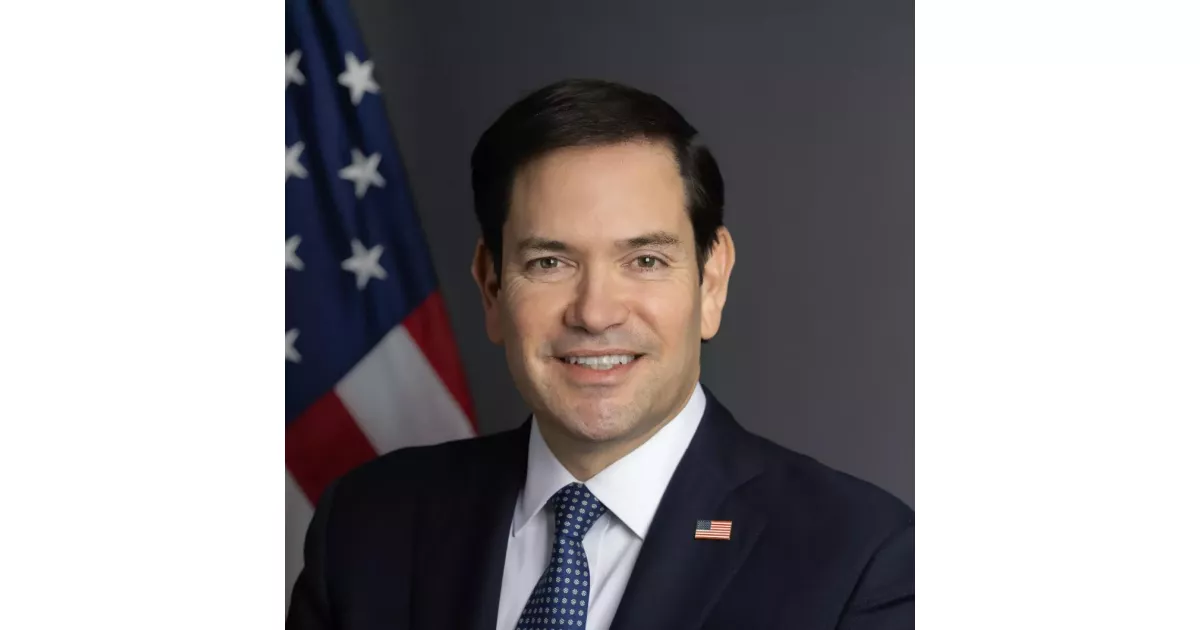Life is full of challenges, and Marco Rubio faced many. Discover key struggles and how they were overcome.
Marco Rubio is an American politician, attorney, and diplomat. He is currently serving as the 72nd United States Secretary of State (since 2025), and also serves as the acting National Security Advisor and acting Archivist of the United States. A member of the Republican Party, Rubio previously represented Florida in the U.S. Senate from 2011 to 2025.
1956: Rubio's Parents left Cuba
In 2011, The Washington Post reported that Rubio's parents left Cuba in 1956, during the Batista regime.
1959: Rubio's False Statements about Parents
In 2011, The Washington Post reported that Rubio's previous statements that his parents were forced to leave Cuba in 1959 (after Fidel Castro came to power) were falsehoods.
2001: Rubio's Tax Reduction Plan
In 2001, Marco Rubio introduced a plan to reduce state property taxes to 2001 levels, potentially eliminating them, while increasing sales taxes to fund schools. The proposal passed the House but faced opposition, leading to smaller changes and a property tax exemption increase.
2005: Supreme Court Decision in Kelo v. City of New London
In 2005, the Supreme Court's decision in Kelo v. City of New London took a broad view of governmental power to take private property under eminent domain, which later influenced Florida's 2006 law limiting such authority.
January 2007: Crist Takes Office and Clashes with Rubio
In January 2007, Charlie Crist took office as governor and frequently clashed with Marco Rubio. Their most significant disagreement involved Crist's initiative to expand casino gambling, leading to a lawsuit by Rubio that the Florida Supreme Court ultimately sided with, blocking Crist's deal with the Seminole Tribe.
2010: Report on Spending Requests
A 2010 report by the Tampa Bay Times and Miami Herald said that some of Rubio's spending requests dovetailed with his personal interests.
2010: American Express Card Charges Issue During Senate Campaign
In 2010, during Marco Rubio's Senate campaign, the media and political opponents raised questions about charges made on his Republican Party of Florida American Express card during his time as House speaker.
2010: House Foreclosure
In 2010, the Tallahassee residence that Marco Rubio co-owned with David Rivera went into foreclosure after missed mortgage payments. Rubio assumed responsibility for the payments, and the house was eventually sold.
October 2011: Washington Post Report on Family History
In October 2011, The Washington Post reported that Rubio's statements about his parents leaving Cuba in 1959 were false, as they left in 1956.
2011: Rubio Votes Against Budget Control Act
In 2011, Marco Rubio voted against the Budget Control Act of 2011, which included mandatory automatic budget cuts from sequestration. He later criticized linking defense spending to taxes and the deficit.
2012: Rubio Votes Against Fiscal Cliff Resolutions
In 2012, Marco Rubio voted against the "fiscal cliff" resolutions, arguing they would harm small businesses and not address the national debt.
2012: Ethics Commission Clears Rubio of Wrongdoing
In 2012, the Florida Commission on Ethics cleared Marco Rubio of wrongdoing regarding his use of the party-issued credit card, but noted a "level of negligence" for not using his personal MasterCard.
2013: Rubio Involved in "Gang of Eight" Immigration Reform
In 2013, Marco Rubio was part of the bipartisan "Gang of Eight" senators that crafted comprehensive immigration reform legislation. The bill passed the Senate, but Rubio later opposed its consideration by the House.
2013: Republican response to Obama's 2013 State of the Union Address
In 2013, Rubio was chosen to deliver the Republican response to President Obama's State of the Union Address, marking the first time it was delivered in both English and Spanish. His stance against defense sequestration was countered by Senator Rand Paul's call for the sequester to be carried out.
2013: Rubio's Immigration Reform Support Leads to Tea Party Disapproval
Marco Rubio's 2013 support for comprehensive immigration reform legislation led to a decline in the Tea Party's support for him.
February 2015: Reported voting record analysis by Vocativ
According to analysis by Vocativ as reported by Fox News, from January 2011 to February 2015, Rubio missed 8.3% of total votes.
October 26, 2015: GovTrack.us analysis of Rubio's Senate votes
According to GovTrack.us analysis, from October 27, 2014 to October 26, 2015, Rubio voted in 74% of Senate votes.
November 2015: Rubio Releases Credit Card Statements
In November 2015, during his presidential campaign, Marco Rubio released his party credit card statements from January 2005 through October 2006, revealing personal charges that he had reimbursed.
February 6, 2016: Criticism from Chris Christie in New Hampshire debate
During a nationally televised debate among Republican candidates in New Hampshire on February 6, 2016, Rubio was criticized by Chris Christie for speaking repetitiously and sounding "scripted".
February 2016: Rubio calls Trump a "con artist"
In February 2016, during the Republican primary campaign, Marco Rubio criticized Donald Trump, calling him a "con artist" and saying that Trump is "wholly unprepared to be president of the United States".
March 15, 2016: Suspension of Presidential Campaign
On March 15, 2016, Marco Rubio suspended his presidential campaign after losing to Donald Trump in the Florida Republican primary.
June 2016: Rubio Reaffirms Concerns About Trump's Access to Nuclear Codes
In June 2016, after Donald Trump became the presumptive GOP nominee, Marco Rubio reaffirmed his February 2016 comments that we must not hand "the nuclear codes of the United States to an erratic individual".
October 7, 2016: Rubio Condemns Trump's 'Access Hollywood' Comments
Following the October 7, 2016, Donald Trump Access Hollywood controversy, Marco Rubio wrote that "Donald's comments were vulgar, egregious & impossible to justify. No one should ever talk about any woman in those terms, even in private."
2016: Harsh Criticism During Republican Primaries
During the Republican primaries in the 2016 presidential election, Rubio and Donald Trump harshly criticized each other, marking a period of intense political rivalry.
January 2017: Speculation of termination of political career
In January 2017, Rubio said he would be a "private citizen", leading to some media speculation of the termination of his political career.
April 2020: Attempt to Stop Obamacare Defeated
In April 2020, the U.S. Supreme Court voted 8–1 against Rubio's attempt to stop the Affordable Care Act (Obamacare).
July 13, 2020: Chinese government sanctions Rubio for interfering in China's internal affairs
On July 13, 2020, the Chinese government sanctioned Rubio for "interfering in China's internal affairs" by condemning human rights abuses in Xinjiang.
August 10, 2020: Chinese government sanctions Rubio for "behaving badly on Hong Kong-related issues"
On August 10, 2020, the Chinese government sanctioned Rubio and 10 other Americans for "behaving badly on Hong Kong-related issues".
2020: Sanctioned by Chinese Government
In 2020, the Chinese government sanctioned Marco Rubio twice, and he is banned from entering China.
2020: ICC Opens Investigation into Alleged War Crimes in Afghanistan
In 2020, the International Criminal Court (ICC) opened an investigation into alleged war crimes in Afghanistan.
2021: ICC Deprioritizes Investigation into U.S. Troops
In 2021, the International Criminal Court (ICC) deprioritized the investigation into U.S. troops, focusing instead on crimes committed by the Taliban and ISIS-K.
2024: ICC Issues Arrest Warrants for Israeli Officials
In 2024, the International Criminal Court (ICC) issued arrest warrants for Israeli Prime Minister Benjamin Netanyahu and Minister of Defence Yoav Gallant.
January 23, 2025: Rubio Freezes Passport Applications Requesting 'X' Sex Markers
On January 23, 2025, Marco Rubio instructed State Department staff to freeze any passport applications that requested "X" sex markers, in compliance with Executive Order 14168, leading to confusion and held documents for transgender applicants.
January 24, 2025: Rubio Enacts Freeze on U.S. Foreign Aid
On January 24, 2025, Marco Rubio enacted an unprecedented 90-day freeze on all U.S. foreign aid, with some exceptions, as per President Trump's executive order, which shut down many of USAID's humanitarian, development, and security programs worldwide.
May 15, 2025: Rubio Acknowledges Criticism of Gaza Humanitarian Plan
On May 15, 2025, Marco Rubio acknowledged criticism of the U.S.-backed Gaza Humanitarian Foundation plan and stated the U.S. government is "open to an alternative if someone has a better one".
May 16, 2025: Trump Discusses Gaza Humanitarian Situation in Abu Dhabi
On May 16, 2025, while in Abu Dhabi, UAE, Donald Trump discussed the situation in Gaza, stating, "We're looking at Gaza. And we're going to get that taken care of. A lot of people are starving."
June 2025: Rubio Announces Sanctions on International Criminal Court Judges
In June 2025, Marco Rubio announced sanctions on four International Criminal Court judges, allegedly for targeting the United States and Israel.
June 2025: White House requests rescissions in foreign aid
In June 2025, the White House requested that Congress pass a package of rescissions, or "clawbacks", of approximately $8 billion in foreign aid and $1 billion for the Corporation for Public Broadcasting.
Mentioned in this timeline

Donald John Trump is an American politician media personality and...
Fox News Channel FNC is a conservative American news and...
Ukraine is a large country in Eastern Europe second in...
The Affordable Care Act ACA also known as Obamacare is...

Rand Paul is an American politician and ophthalmologist He has...

Joe Biden a member of the Democratic Party served as...
Trending

2 months ago Russian Drone Attack Ignites Gas Tanker Blaze Near NATO Border After US Gas Deal

Emilio Nava is an American professional tennis player He reached a career-high ATP singles ranking of No on July and...
On May a mass shooting occurred at Robb Elementary School in Uvalde Texas Salvador Ramos an -year-old former student killed...

3 months ago Alexandrova Reaches Ningbo Final, Set to Face Rybakina After Shnaider Victory

6 months ago Cameron Norrie faces Mattia Bellucci in Wimbledon 2025; live updates and scores.

7 months ago Paula Badosa faces tough match against Eva Lys at WTA Berlin 2025.
Popular

Carson Beck is an American college football quarterback currently playing...
Curt Cignetti is an American college football coach currently the...

XXXTentacion born Jahseh Dwayne Ricardo Onfroy was a controversial yet...
WWE Raw a professional wrestling television program by WWE airs...

Stranger Things created by the Duffer Brothers is a popular...

Candace Owens is an American conservative political commentator and author...
